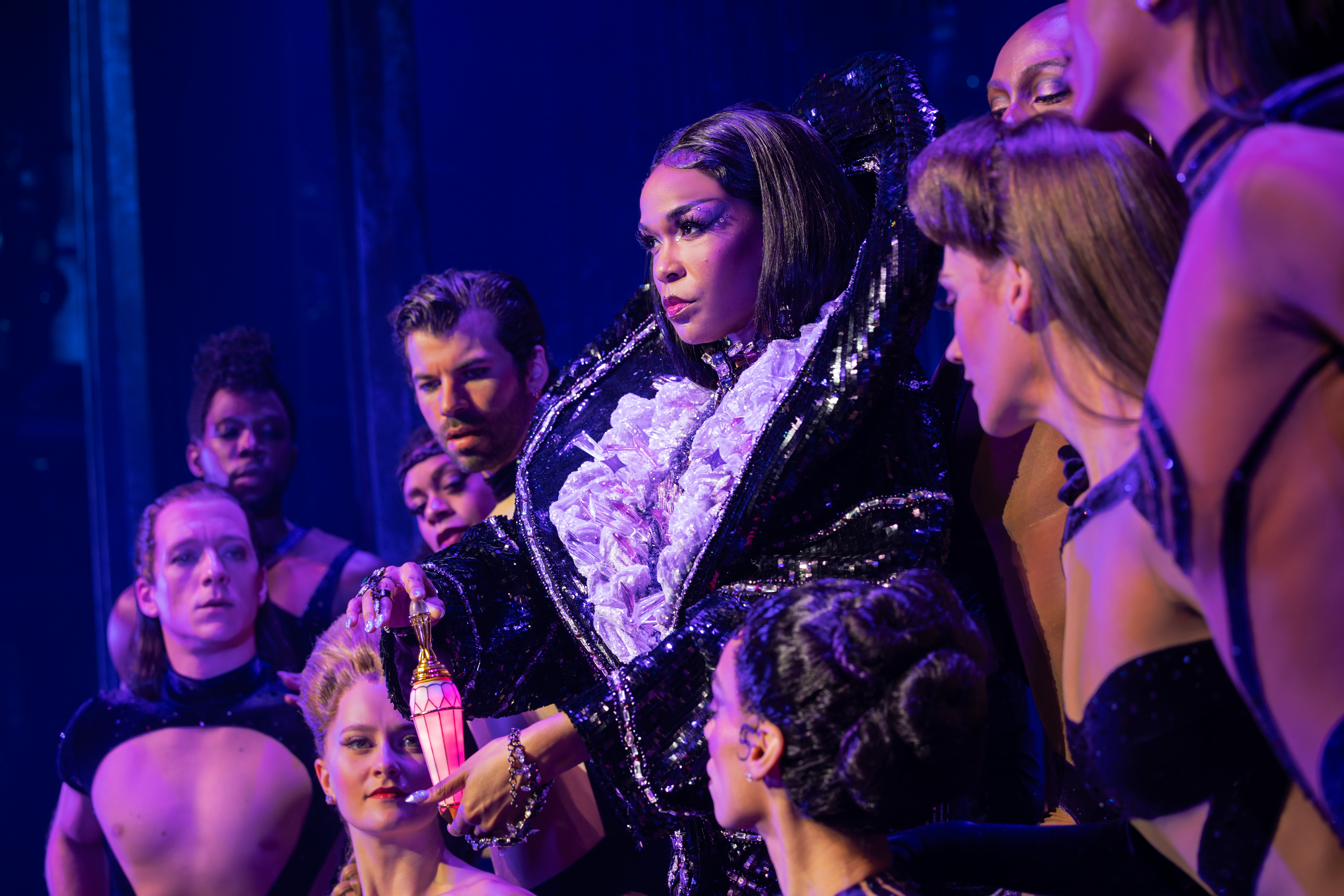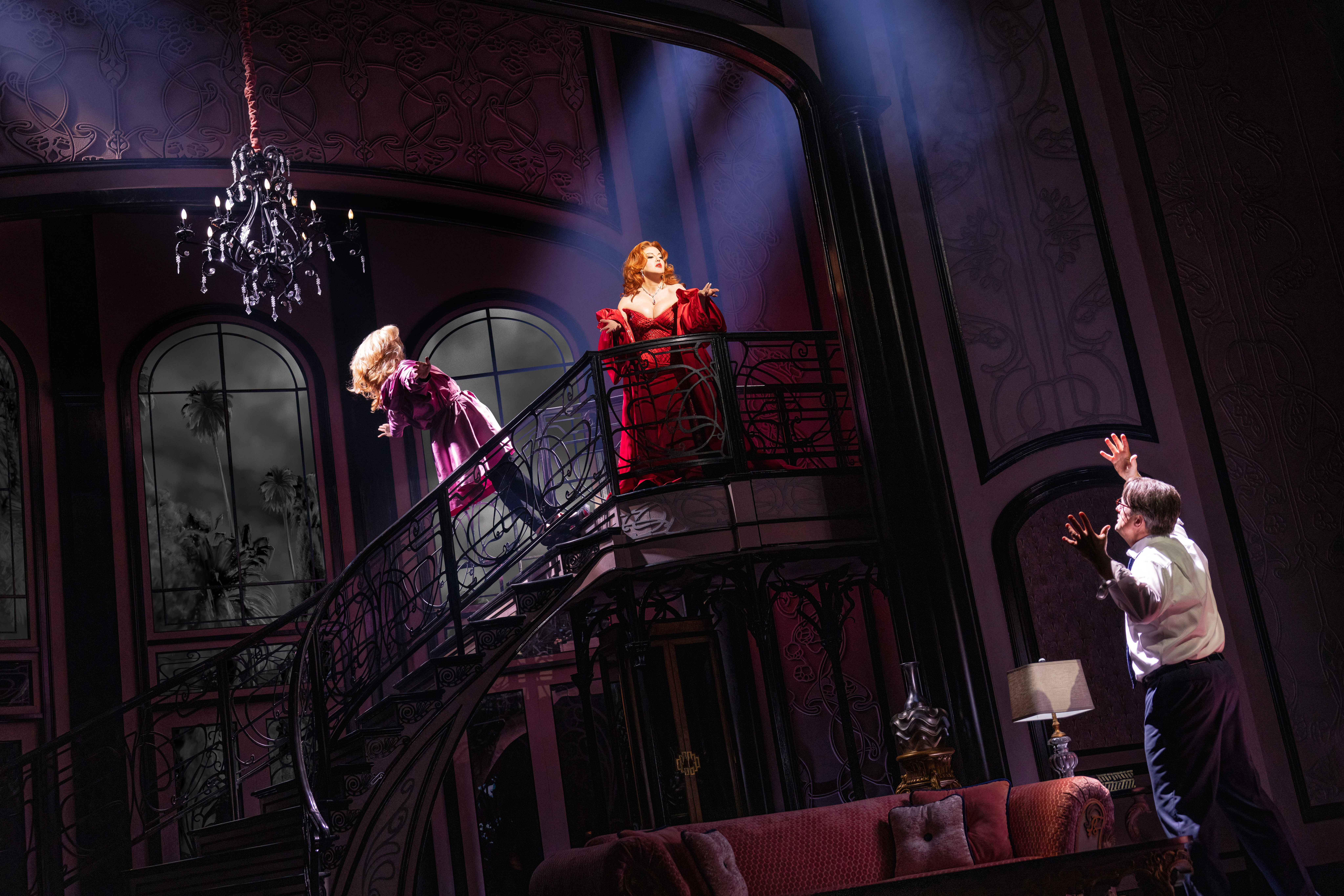
Chicago is no stranger to Broadway trials—especially adaptations of classic films. We have seen countless move through the city over the years, and many seem to fall into the trap of remaining too close to the original source material: A production that almost feels like someone took the movie scenes and staged a replica on stage. At a certain point, one might wonder why the piece needed to be a musical in the first place. What does the adaptation do for the story, and how can we enhance it? How can we create a different experience for both long-time fans of the film and folks interacting with the material for the first time?
Death Becomes Her, based on the 1992 film starring Meryl Streep and Goldie Hawn, in no way falls into that category. With book by Marco Pennette, the musical certainly includes many of the famous moments that fans will recognize. However, the production also brings the story to life in a new way, capturing the dark magic and camp in a manner that invited opening night audiences to jump to their feet after the first number: “If You Want Perfection,” performed with dazzle by Michelle Williams, who plays Viola Van Horn.

The story follows two frenemies. Madeline Ashton (Megan Hilty) is a star—drop dead gorgeous and ready to take over any room that she enters. Helen Sharp (Jennifer Simard) is a struggling author who is sick of living in Madeline’s shadow. However, the day that she shows up with Ernest Menville (Christopher Siber), a handsome fiancée, everything changes. The two have always found dreadful joy in taking each other down peg by peg but in the face of possible defeat, Madeline does the only thing she can—steal the man for herself.
When Madeline and Helen decide to partake in a magical potion from Viola Van Horn, their entire world turns upside down. Their youth and beauty may be restored, but Madeline and Helen quickly learn to be careful for what you wish. Sometimes, there are fates perhaps worse than death.
Directed and choreographed by Christopher Gattelli, Death Becomes Her is an over-the-top comedy. The musical leans into the over-dramatic, campy flare of the original film, and Hilty and Simard rise to the challenge with ease and incredible talent. Gattelli’s team lifts up the magic and mystery of the story in their designs—particularly in the work of scenic designer Derek McLane and lighting designer Justin Townsend. The stage is full of purple and sparkle. Viola’s mansion in particular elicited cheers from the crowd, with the grand staircases that led to seemingly nowhere, and misty fog that encircles the ensemble as they perform the jaw-dropping choreography and acrobatic feats.

With music and lyrics by Julia Mattison and Noel Carey, the score features boppy hits including “That Was Then, This is Now,” “The Plan,” “Madeline,” and “Confrontation.” With such a stellar cast, every song hits, and carries a vibrato that bounces through the theater. In particular, the numbers that hit embrace the over-the-top feel of the story, and feature the top-notch ensemble alongside the stars.
“For the Gaze” offers our introduction to Madeline. The song itself tells the story of Madeline, letting us know that she has no problem capturing the fascination of every man who comes her way. To say that Hilty embraces the role is an understatement, filling the number with pure joy that radiates off her. She hits the audience with a charming charisma, and with every costume change and dance break, the cheers by this opening night crowd got louder. Gattelli’s choreography is on-point, and being only the second number in the show, it became clear early on that we were in for a night of excitement.
With fabulous performances, gorgeous design, and a script full of camp, Death Becomes Her is a night to remember. This opening night performance ended with a full standing ovation. Whether or not you' re a fan of the 1992 film, I have a feeling you'll be joining in with the rest. Death Becomes Her runs through June 2 at the Cadillac Palace Theatre, 151 W Randolph St. Tickets are $48-$118 for Tuesday–Sunday performances. Run time is 2 hours and 30 minutes, with anintermission.
For more information on this and other plays, see theatreinchicago.com.
Did you enjoy this post and our coverage of Chicago’s arts scene? Please consider supporting Third Coast Review’s arts and culture coverage by making a donation by PayPal. Choose the amount that works best for you, and know how much we appreciate your support!
